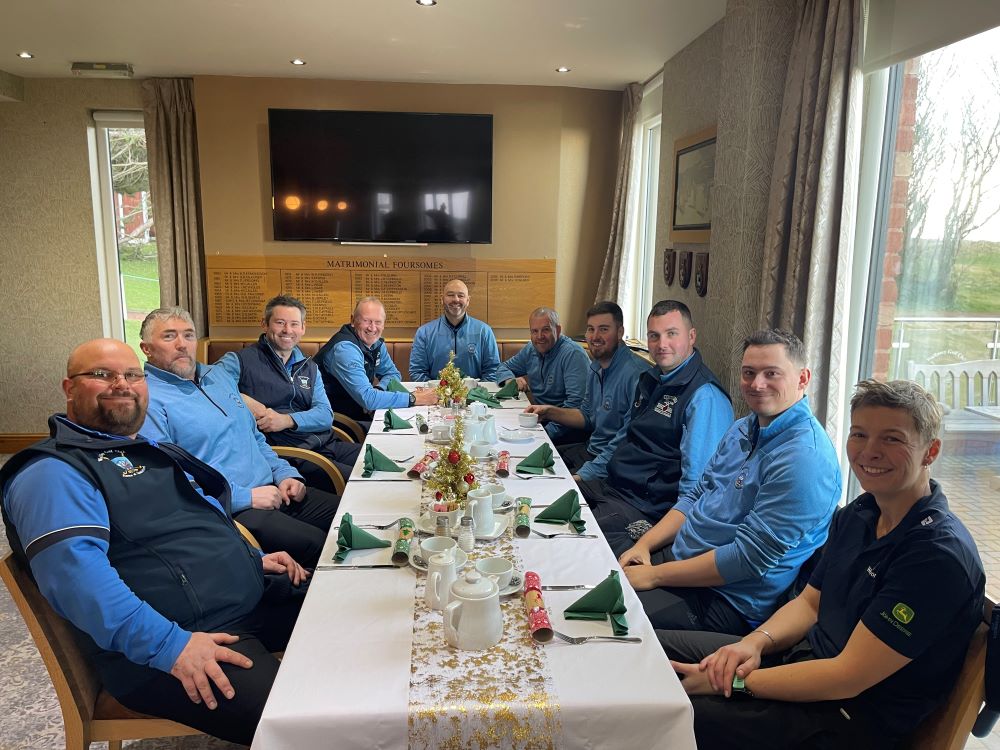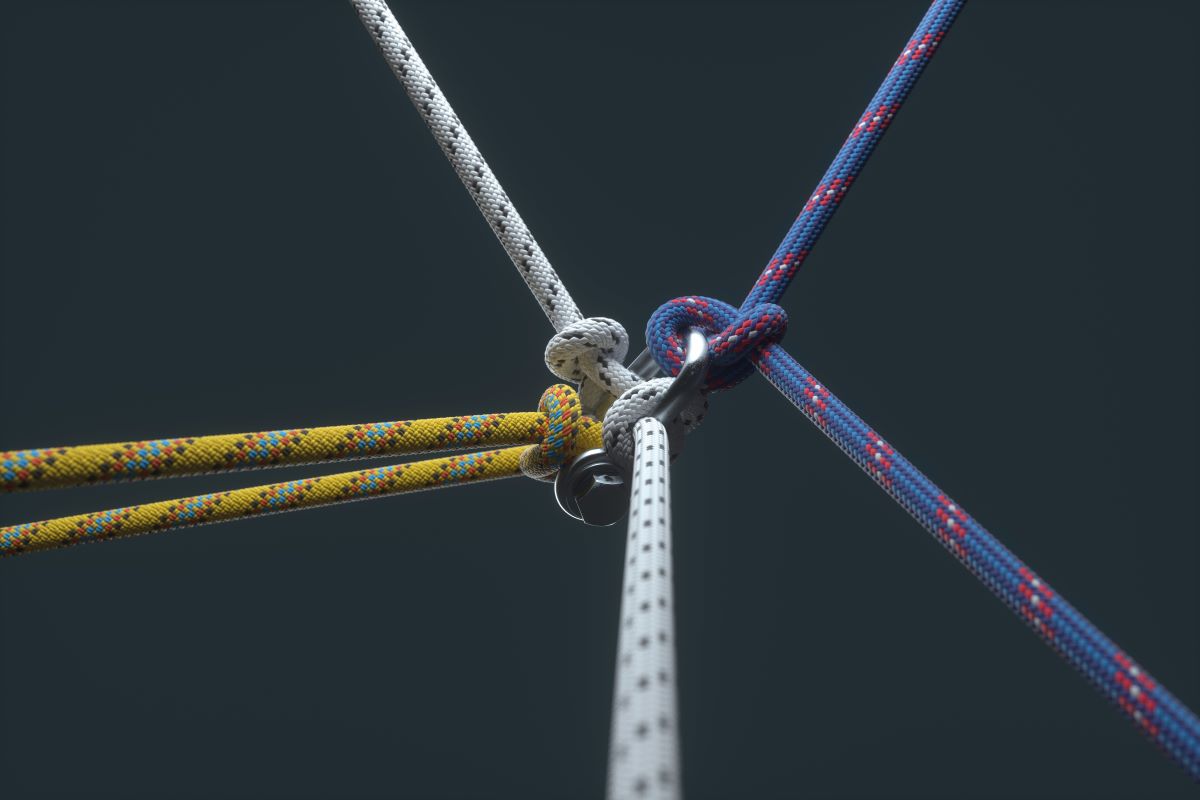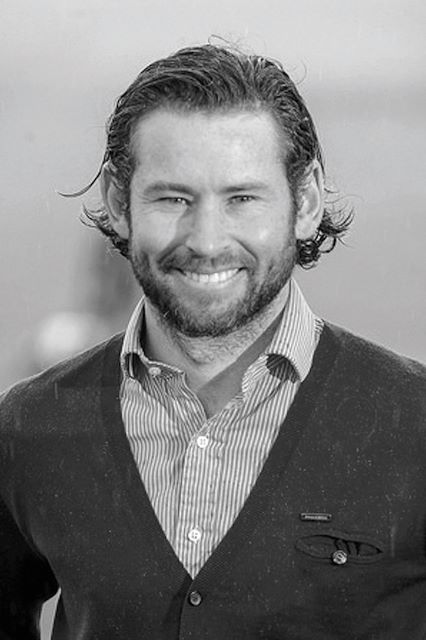- Homepage
- News and Features
- A five stage management strategy
A five stage management strategy
Wallasey course manager John McLoughlin has distilled 20 years’ experience into a leadership philosophy – the ‘All One’ management strategy. He believes it delivers a better standard of greenkeeping and, more importantly, a happier workforce.

Before I became a course manager I was lucky enough to travel to events and tournaments around the world and I was conscious of taking in as much information as I could about leadership, rather than agronomic advice.
I was looking at how course managers or superintendents were developing their teams and how they were structuring their teams to get the best out of them.
I worked under several course managers and I tried my best to learn from them. I was looking at the bad bits as well as the good traits – you can learn a lot from someone who does things you're not quite sure about.
I felt other industries had plenty of philosophies on managing teams. They’re often really structured and companies use these philosophies to deliver elite, high-performing teams, but I was conscious there's never been anything similar for greenkeeping teams.
I decided that once I became a course manager I would start putting some of these philosophies into practice.
I knew it had to be a structured philosophy that we could replicate repeatedly and when I started at Warrington it was almost a trial – a social experiment to see whether these principles would work within greenkeeping.
I admit I was thinking there was a good chance my ideas would fail, but the engagement from the team was amazing and they were quickly hitting world-class standards, which blew my mind.
I joined Wallasey in 2020 managing a bigger team, which was great, but I was aware of a resistance to change. However, it's exceeded my expectations and the daily standards we’re achieving are fantastic.

It's a five-part process of managing and structuring the team and all the elements are as important as each other. If we aren’t consistent with one part, then the whole process falls to pieces, so it takes a lot of discipline and it takes a lot of structure to deliver daily.
Stage One
The attitudes you choose to bring to work
In previous jobs I had always felt that the whole team’s performance was dictated by the attitudes of the manager. If they had an argument with their partner, or received an email from the committee to say the greens were too slow, they would come in the next morning and bring the whole team down.
No matter what happens in my life, as soon as I come through the barrier at Wallasey, I only ever bring a positive attitude to work.
Sometimes it's difficult, but as soon as we enter the workplace, we are engaged and constructive.
That's not to say things don't happen in people's lives or that we're trying to turn people into robots, but if people can't bring a positive attitude on any given day we accept that, but we prefer people don’t come into work until they’re ready to engage again.
Most clubs encourage people to come in even when they're not in a fit state to work.
Some of our staff have had traumatic experiences recently, but rather than them attend and not be able to give 100%, they take time off.
Most teams seem to have one difficult, negative person, but what you find is when everyone is positive, the person who likes to be glass-half-empty often leaves of their own will. We recruit staff based on attitude, body language, energy and commitment – attributes that have nothing to do with greenkeeping.
Stage Two
Reflecting on yesterday
Positive and constructive daily feedback is essential to build a dynamic team and our motto is that we're trying to be one per cent better every day, individually and collectively.
In most teams I've worked in – even the very best – no one reflects on yesterday. Everyone concentrates on what they want to do that day. So every morning we spend half an hour discussing the previous day and everyone must talk through what they did and how they could do that job better.
Once you get everyone on board with this management style, the outcomes grow exponentially.
There are no shortcuts – people can’t just say ‘I raked bunkers’. They've got to give us detail.
Doing this consistently helps the team bond with each other and know exactly what everyone's doing and mistakes stop happening.
I couldn’t manage the afternoon in the same way because it takes a lot of mental energy to go into so much detail, so I don't give out jobs in the afternoon.
The team manage their own time and there's a reason for that. In the morning debrief, people know that I haven't a clue what they've done the previous afternoon, so they have to be really detailed with telling me what they've done. We're empowering people to manage their own time and to manage their own responsibilities and that's a powerful part of the process.
Stage Three
I ask the whole team always to stay fully present in work
In modern society, there are more distractions than ever, but being present means being there for each other.
We talk about people being busy fools. On our team, no one's allowed to say they are too busy because it's just a matter of priorities.
It's very important, within our team, that everyone is 100 per cent present with each other all the time.
We're trying to make people better greenkeepers, but we're also trying to make them better people in life as well. It's not unusual for our staff to go home and be speaking to their partner or children and say: ‘Can you get off your phone please?’
I often have missed calls because I'm more interested in giving my 100 per cent attention to the staff members than I am to take a phone call.
It takes a huge amount of discipline and that's probably the thing that took me the longest to adapt to.
I have to remind myself to be present every day, to set the right example.
Stage Four
You’re only as strong as your weakest link
Everyone’s pretty much their own boss in our team, but to get engagement and buy-in from each individual, everyone has their own role and responsibility.
We're not talking about someone having to brush the shed or wash the toilet – meaningful roles and responsibilities like data collection or setting up the machines for the day.
I think by giving people responsibility and some ownership of the job, when our team wakes up in the morning they know that there's some value to them being there and they love coming to work.
We have staff who don't like being off. They like coming into work because they feel valued and the only way to do that is to give someone a role and a responsibility they can be proud of. It can take time when we have new staff and we have to learn their skill set, their values and what makes them tick, but then we can give them roles and responsibilities once we know them as individuals.
We found giving everyone a meaning to come into work every day is extremely powerful.
If they were to do a poor job of that role and responsibility, they would feel as though they’re letting down their friends, so it just doesn't happen.
Stage Five
Being world class in our jobs is a choice
I'm lucky to visit a lot of courses and one thing I hear a lot is ‘well, we can't do what you do because we don’t have the staff’. But being world class on any given day is a choice.
For instance, a couple of our team will go out to do our course set up each morning and their whole approach to their job is to go out and do that job to the best of their ability for those five hours.
That might mean cleaning down the benches, picking up all the tee pegs, changing holes – we know that on any given day we go out, there's not one golf club in the world doing a better job than us.
We’re not saying we’re the best golf course in the world, but if someone goes out to cut fairways, they reflect at the end of that shift to ask: ‘Have I cut corners? Could I have done a better job? Was I world class today?’
From my travels, I’m lucky that I have a good idea of what world class looks like, so then it’s just a matter of trying to replicate that on any given day. It doesn't matter what course you run – you could have two staff or 50 – the process of doing that job to the best of your ability is a choice.
I visit a lot of courses where, for instance, the tee markers aren't straight, and that's just the choice of the person who set them up.

About John
John McLoughlin is the course manager at Wallasey, in Merseyside, and has been with the club since 2020. He began his career at Gleneagles, then travelled to Australia and America, working and touring golf clubs. On his return he took up the position of deputy head greenkeeper at Grange Park and in 2015 became course manager at Warrington. John is a graduate of the first FTMI class in 2013 and is also a mentor for the programme.
Why I believe in positive appraisal
We’re happy with things going wrong, because that’s where we learn the most.
We are people-focused and thrive off failure, whereas most teams are course-focused and failure is their enemy. We positively appraise every day. If someone’s cut fairways nicely, we give praise for that: ‘Good job yesterday, the fairways looked amazing’.
Every day, we are appraising and giving positivity to help them with their jobs, which is hard.
It’s not in our nature to be so positive and it just doesn’t happen in greenkeeping – people concentrate on the negatives.
How nice is it to be told what an amazing job you’ve done in front of the team? But you’ve got to do it every day, because people notice and that’s when the cracks show. GI
The Future of All One
The philosophy is evolving all the time. We refined the principles when I moved to Wallasey and if there’s something that we feel we’re not doing right, then we’re not scared to evolve again. By carrying out the processes and being consistent every day it’s exceeded my expectations at two clubs and shown me what can be achieved with a small team of people.

Author

